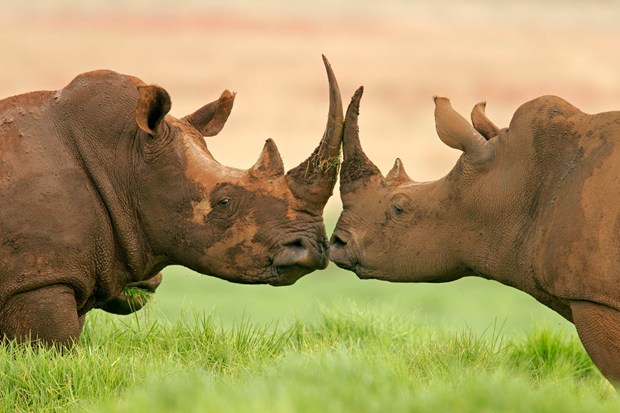
Rhino poaching, the illegal hunting and killing of rhinos for their horns, has contributed to the rapid decrease in rhino population. Rhino poaching is seemingly an issue exclusive to South Africa and other countries in Africa with rhino populations, however, the issue of rhino horn trade and whether or not it should be legal effects several different communities and countries. With constant debate whether or not rhino horn trade should be legal or not at the upcoming CITES (Convention on Internal Trade in Endangered Species) conference this coming September, it is important to take into consideration the implications rhino horn trade will have.
Currently, rhinos are listed as an endangered species by the World Wildlife Fund for Nature (WWF), a non-governmental organization that works to conserve various wildlife species. Currently, the ban on removing and selling of rhino horn is monitored by CITES. CITES works to organize the different species into different appendices that regulate how much they could be traded based on their current population. The Black and White Rhinos (found in the areas of South Africa and Swaziland) have been classified as animals under appendix I, designated for animals that are on the verge of extinction, while other types of rhinos, such as the Indian and Javan, are appendix II, designated for animals that could become extinct if trade is not closely monitored.
The legalization of rhino horn trade could help end terrorism. Well, not quite, but it would help put an end to the funding of one terrorist organization. In 2011, the EAL (Elephant Action League) , an independent, nonprofit organization that fights wildlife crimes, conducted an 18-month investigation into the money trails between poaching and Somalia’s Islamic extremist group, Al-Shabaab, who has been linked to Al Qaeda. In the investigation, EAL found multiple exchanges between poachers trading with Al-Shabab. The trade helped the terrorist group generate anywhere from $200,000-$600,000 from elephant ivory and rhino horns to fund their extremist plans. Additionally, poachers are becoming more dangerous as they are supplied with weapons and tracking equipment from criminal groups around the world, such as Al-Shabab. Legalizing international rhino horn trade would end the high risk and expensive black market while subsequently putting an end to the funding of terrorist groups.
Furthermore, rhino horn on the black mark can be sold up to $60,000, but can be sold for $100,000 in Vietnam, the largest consumer of rhino horns. The reason for such a high demand of the horns can be attributed to the Vietnamese belief that the horn power can cure cancer, amongst other diseases. Dr. Dang Huy Quoc Thinh, a Vietnamese oncologist and head director in the department of Radiation Oncology at the Ho Chi Minh City Oncology Hospital, claims that “Cancer is a big problem in Vietnam. We have about 150,000 new cases a year, and the waiting list for radiotherapy is very long”. For that exact reason, many people take the chances by purchasing rhino horn powder. If the rhino horn trade was legalized, it would lower the cost of the horns considerably, giving those who use the horn power a greater chance to experiment with its medicinal properties, perhaps even cure cancer.
With the CITES convention slowly approaching us, a legalized rhino horn trade, which could operate under a Centralized Selling Organization (CSO). The organization would the legally and harmlessly remove the horn from the rhino, which would help decrease the death rates of rhino, and allow the horn to grow back for future profit. If implemented with the correct regulations and enforcement, the CSO would eradicate the black market whilst helping put an end to the funding of a terrorist organization and allow for medical experiments to help Vietnam’s Cancer issue.